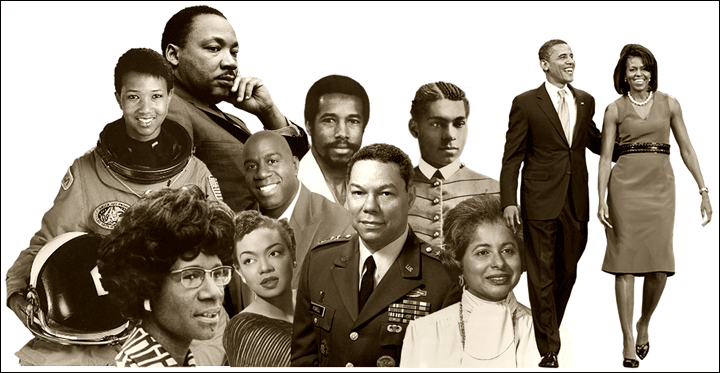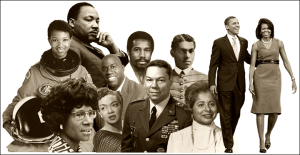The National Black Repertory Company brings a weeklong festival to Winston Salem North Carolina every two years. It’s called the National Black Theater Festival. Each year there is a theme. One year it was “Black Theatre Is For Everyone”; for another, it was “On Common Ground.” These sentiments run deep as I think of all the reasons why African American/Black History should be for everybody as we search for more common ground.
While researching how February became this month-long celebration of African American achievement, I realized American history should be much more inclusive. Black History Month is an integral part of our nation’s traditions when we promote positive examples of history-altering events, exemplary leaders and pioneers and societal change we recognize today. The remembrances are not only deeply meaningful for the African American community, but imperative to the greater understanding of national and world his and her stories!
One major eye opener of the significant contributions of African American women is the movie Hidden Figures . It was tagged as the forgotten women who helped win the space race. Hidden this history was until now. Their collective contribution was largely left out of our history books. The movie documents the contributions and accomplishments of NASA’s black “human computers” whose work was at the heart of the success of the space program. They were Katherine Johnson (math whiz), Mary Jackson (engineer) and Dorothy Vaughn (computer expert.) We had heard the stories of the astronauts. Now it was time to hear the women’s stories.
“I didn’t know the story until I got the script,” said actress Taraji P. Henson, who played the role of Jackson in the movie. “And I went to North Carolina A&T State University, where Ron McNair, a physicist and NASA astronaut who died in the space shuttle launch, attended. “I actually studied electrical engineering where Mr. McNair had a building named in his honor. If it wasn’t for Katherine Johnson, there would have been no Ron. So when I realized the importance of this hidden history, I knew that I had to take the part in the movie and it became by passion project.”
Soon, Star Trek fans will be celebrating a new heroine on the big screen. Her name is Sonequa Martin-Green and she will become the first black female lead character in the storied sci-fi series. Martin-Green’s character has not been publicly named, but Executive Producer, Bryan Fuller has said that he wanted more women of color. He was inspired to the build the show around a black woman by former astronaut Mae Jamison and former Star Trek alumnus Nichelle Nichols who played Lieutenant Uhura on the 1960’s TV series.
Here as some things that you may do to make a daily difference and open the door for learning and sharing.
*Learn something new about our history and share that knowledge. Be purposeful about educating yourself and others. So often only the negative aspects of African American life get highlighted. We are overwhelmed with the images and stories of athletes and celebrities as examples of success or lack thereof. There are countless stories and history lessons rarely told about the past and current contributions African Americans have made and are making.
*Engage the community by reliving, retelling and remembering history. Create awareness of the struggles that African Americans have overcome and continue to overcome in this country. This perseverance will serve as inspiration for all of America. Every race is connected to the rich history of this nation and by celebrating Black History Month everyone can be included in the learning. Let’s not make February the only month of the year designated for reflection, dialogue, education and shared advocacy.
*Inform our young people that some history need not be repeated. Although our first African American president, Barack Obama, completed his term, many young people are unaware of the sacrifices and struggles of those before made in order to get to where we are today. We’ve got to continue the teaching. It’s imperative that we don’t forget and take these hidden strides for granted. It is as important as ever to celebrate the histories that make up the collective account of American history and use these as a platform for future knowledge for all people.
“We must not, in trying to think about how we can make a big difference, ignore the small daily differences we can make which, over time, add up to the big differences that we often can not foresee.”
Marin Wright Edelman


There are no comments
Add yours